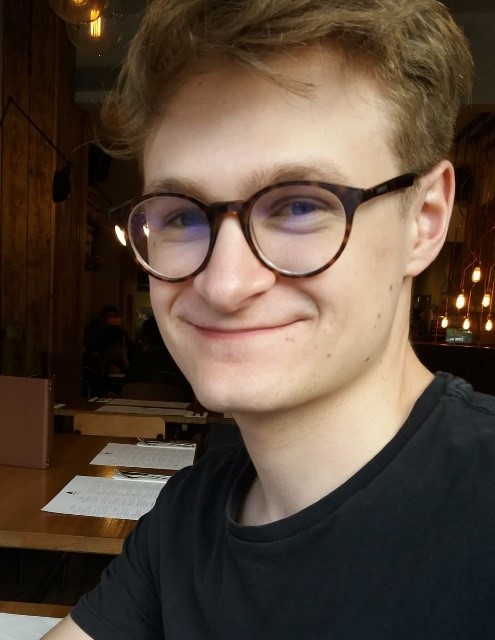Krzysztof Piotrowski

Name: Krzysztof Piotrowski
Nationality: Polish
Academic Background:
MEng in Bioengineering (Medical Devices and Systems), University of Sheffield, United Kingdom
Project Title: Tracing the role of ADAMs in the crosstalk between cancer cells and the tumour microenvironment.
Project Background: During tumour progression, cancer cells shift their originally hostile surroundings towards a tumour-promoting state. To achieve that, a cell communication is required. Despite the scientific community has made several big breakthroughs in understanding and hijacking that communication, which led to the development of immunotherapy, there are still many mechanisms to discover to fully capture how do cancer cells shape tumour microenvironment.
Among most promising factors to regulate this crosstalk between cells are a disintegrin and metalloproteinases (ADAMs). These proteins can act as scissors – cutting a vast range of proteins from the cells surface – many of which are important in sending or receiving information from other cells. ADAMs’ function, their upregulation in many cancers and the correlation of ADAMs expression to poor patient prognosis indicate that ADAMs play a crucial role in the crosstalk between cancer cells and the tumour microenvironment. We hope that by thoroughly studying the role of ADAMs in this communication we will unravel novel mechanisms that will lead to new ways to diagnose and treat cancer.
Project Aim: We aim to unravel the mechanisms, via which ADAMs play a role in cancer development. To achieve that I am screening a large range of proteins released by cancer cells and the tumour microenvironment in an ADAM-dependent manner. I perform this screen using mass spectrometry-based proteomics – a powerful technique that enables you to identify and quantify thousands of proteins from a single sample. By merging the results of the screening and biological data from tumour growth in mice I am planning to identify promising factors correlating to ADAMs and cancer development and further test their functions – both in vitro and in vivo.
Expected Outcome: This study should improve our knowledge on what factors can ADAMs shed from the cell surface and how do those factors affect the tumour microenvironment. The results of this study will improve our understanding of the roles that ADAMs play in cancer development and suggest new therapies based on the specific targeting of ADAMs’ targets in cancer.
Contact: krzysztof.piotrowski@bric.ku.dk
